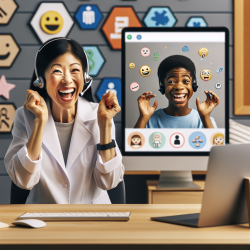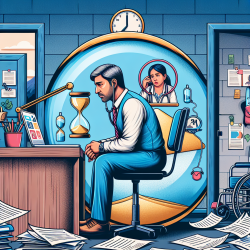Introduction
The COVID-19 pandemic has presented unique challenges to various sectors, including education and healthcare. An observational study by Fei Yu et al. titled How American Academic Medical/Health Sciences Libraries Responded to the COVID-19 Health Crisis provides valuable insights into how libraries adapted to meet these challenges. As practitioners in the field of speech-language pathology, particularly those involved in online therapy services like TinyEYE, we can learn from these adaptations to improve our practices and outcomes for children.
Key Findings from the Study
The study analyzed the responses of American academic medical/health sciences libraries (MHSLs) during the pandemic. Key findings include:
- 90% of MHSLs closed their physical buildings but transitioned services online.
- Libraries curated credible COVID-19 information from reputable sources such as the CDC and WHO.
- MHSLs supported academic and healthcare communities by providing access to up-to-date research and clinical care resources.
- Innovative resources were developed to address ethical issues, health literacy, and personal experience documentation.
Applying These Lessons to Online Therapy
As practitioners, we can draw parallels between the libraries' responses and our own practices in online therapy. Here are some actionable insights:
- Embrace Technology: Just as libraries transitioned to online services, we must leverage digital tools to enhance therapy delivery. This includes using platforms that facilitate interactive and engaging sessions for children.
- Curate Reliable Resources: Providing families with access to credible information about speech and language development is crucial. Curating resources from trusted organizations can empower parents and caregivers to support their child's progress.
- Support Community Engagement: Libraries extended their services to support local communities. Similarly, online therapists can collaborate with schools and community organizations to provide holistic support to children.
- Innovate and Adapt: The pandemic has shown the importance of flexibility. Continuously adapting our methods and exploring new strategies can lead to better outcomes for children.
Encouraging Further Research
The study highlights the importance of ongoing research and documentation. As practitioners, engaging in research can help us stay informed about the latest developments and evidence-based practices. This commitment to learning and innovation is vital for improving therapy outcomes.
To read the original research paper, please follow this link: How American Academic Medical/Health Sciences Libraries Responded to the COVID-19 Health Crisis: An Observational Study.










